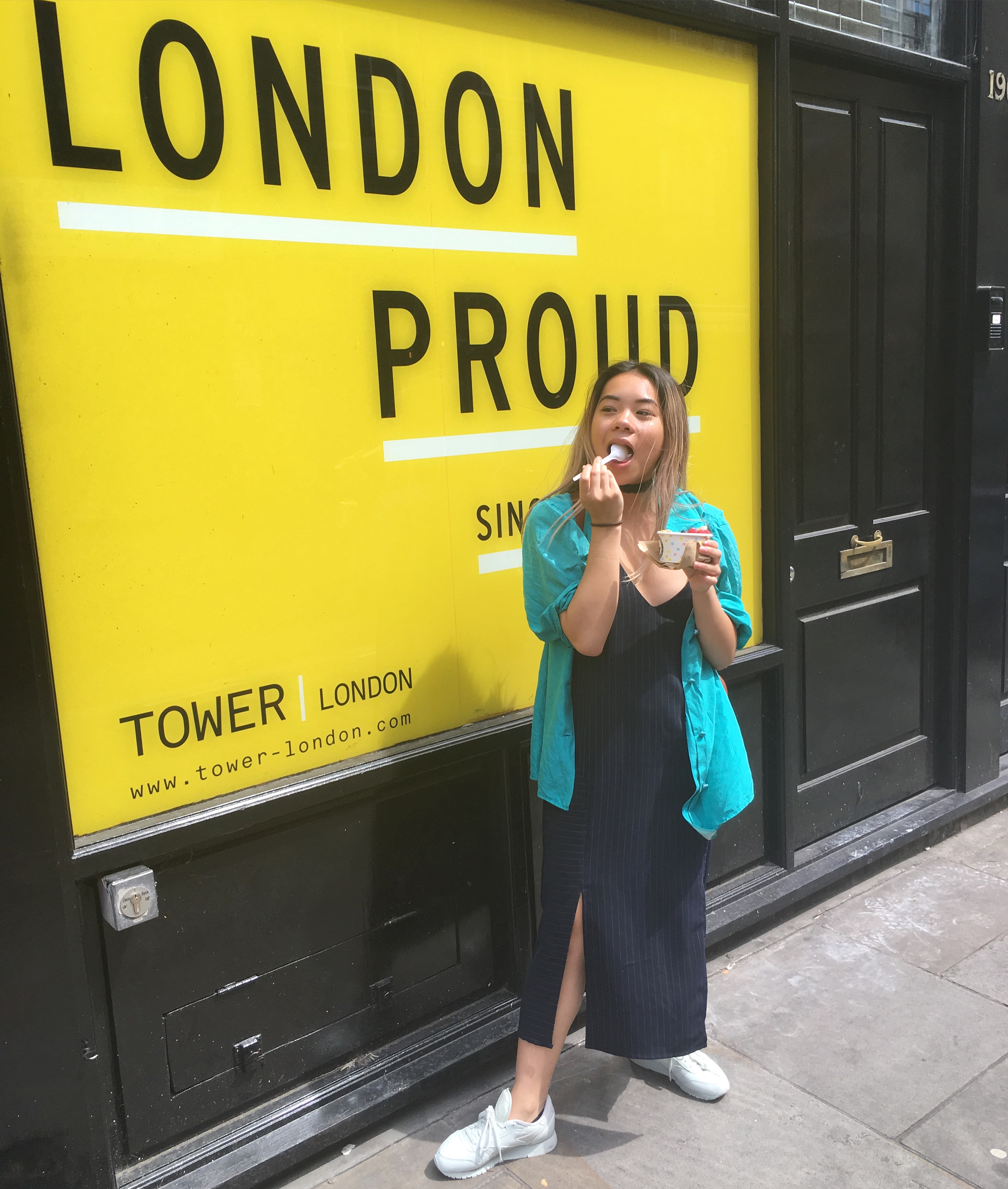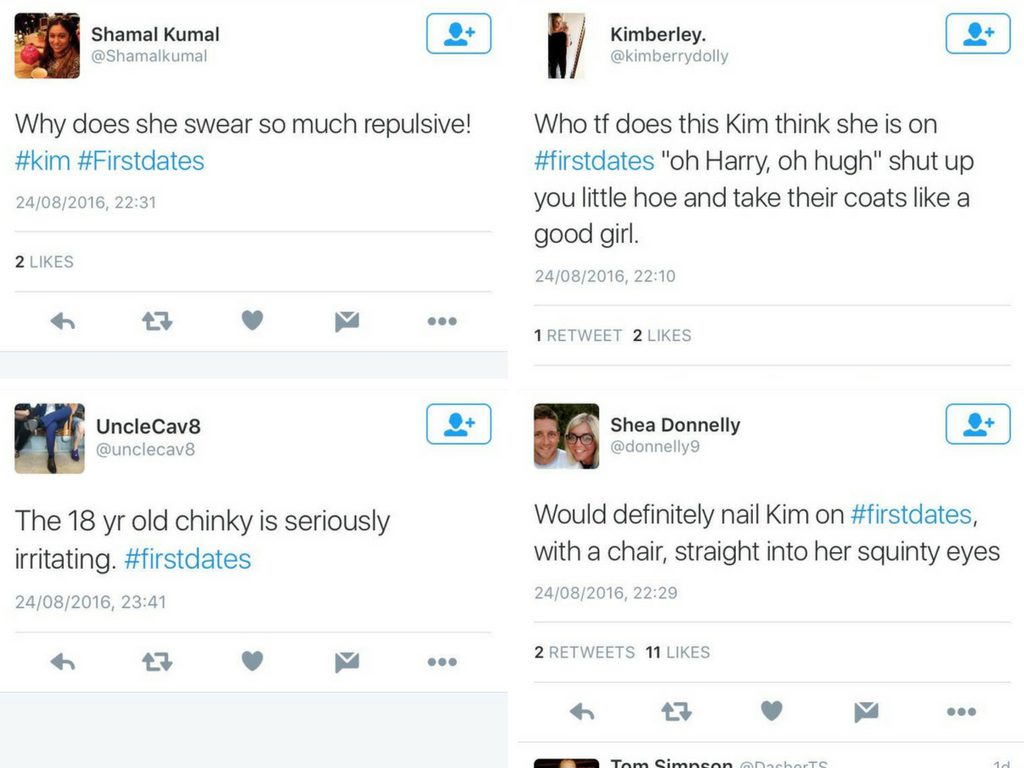
After my appearance on First Dates earlier this year in August, I was exposed to more racism and misogyny in one hour than in my 20 years of life. While I would like to make it clear that this is not a piece slating the programme – First Dates’ purpose is to entertain and everything I said came out of my mouth – what I do not condone is the the treatment I received after the show aired. I understand why people could have found me unlikable, posh, or obnoxious, if not all three. But, the sheer amount of unimaginative racial or misogynistic slurs used against me on social media was an overwhelming and violent experience. Being called a “hoe” or a “chink” on Twitter and Facebook several times over disgusted me.
There is no denying that the targeted misogynoir directed towards black women is more apparent, but racialised misogyny is present in all women of colour’s lives. Although my parents are both from Vietnam, I grew up in London and I was always aware of the prejudices of gender and race against me. But, it was only when I became the brunt of nationwide attention via First Dates that I decided to refuse to let it go unchecked. If I’m being honest, I decided to go on the show for a laugh, because I’ve always tried to say yes to every opportunity that comes my way. I did not expect for it to be such a wake-up call for me in terms of the racism and misogyny it exposed me to.
Sadly, to be judged on your personality alone is a privilege women of colour do not have. There are too many prejudices attached to gender and race, and I was penalised because I didn’t conform to the stereotype of the mysterious and submissive “other”, and deemed unfeminine and unattractive because of my use of expletives. At the time, I wondered whether if I were a white man or even a white woman, the response would have been different. For instance, Gordon Ramsay’s language has benefited his career, enabling the marketing of his TV shows (The F Word being a prime example). In contrast, I was told that because of the vocabulary I chose and the way I conveyed myself, I was “unattractive” or “repulsive”.
Unapologetic women of colour make western, patriarchal society feel uncomfortable, as seen with MP Diane Abbot’s treatment in the media. As Maya Goodfellow wrote for Media Diversified last September, “Abbott is a prime example [of a victim of misogynoir]. Overlooked are her huge achievements. Over her twenty-eight year long career as an MP, she has stuck by her principles, campaigning on gender, race and LGBT issues when it was far from popular and voting against governments when it mattered.”
Now, while my achievements pale in comparison to Abbot’s – she is an extremely important political figure and the misogynoir she faces is far more violent and ongoing than most women of colour face in their lives – hers is a struggle that I can relate to. It is the strong women of colour who do not apologise for speaking their minds and who do not censor themselves for the sake of making others feel comfortable who attract this misogynistic racism. This cycle works to discourage not only women of colour but all women to speak for themselves and be themselves throughout their lives in their interactions with others.
As I’ve already explained, I received several racist and misogynistic reactions but there was one that really stood out. A white woman, on Twitter, wrote: “Shut up you little hoe, and take their coats [Prince Harry and Hugh Grant] like a good girl”. Just to clarify, although it may have appeared that way on the episode of First Dates, I do not know Prince Harry and Hugh Grant on the personal level the show was edited to convey. My issue here however, lies not with this misdirection, but with the misogynistic nature of these words and their obvious racial undertones.
Should I shut my mouth, stop being who I am and be a “good girl” so I seem softer and more feminine just so you can feel comfortable? In my opinion, this sends out a message to young girls of colour on a journey of self-growth that confident women of colour, unapologetic in who they are, are unwanted. I refuse to stop swearing because men and women accuse me of lacking feminine qualities or being less attractive. Society discourages us from being confident in ourselves and for ourselves – for fear that men and society will find us too confident or too brash. A quote from Warsan Shire’s poem For women who are ‘difficult’ to love resonates with me:
“You tried to be softer,
Prettier,
Less volatile,
Less awake”
Women of colour try to do this to make society to accept us.
The racial misogyny we receive is a vicious cycle which we cannot allow to go unchecked. We must show and tell other young girls that it is OK to be strong and confident in yourself without feeling the need to conform to what society would rather you be just for the sake of others comfort. We should not sedate ourselves just to feel more accepted.
Would I go on First Dates again after my experience? Probably not. Not only is the idea of having someone in control of the way I’m shown nauseating, but I’d also rather avoid the large amounts of disgusting misogynistic and racist comments it exposed me to. I don’t need to go on First Dates or any other TV show and expose myself to that again just for a laugh or the experience. I’d rather go to the pub.










